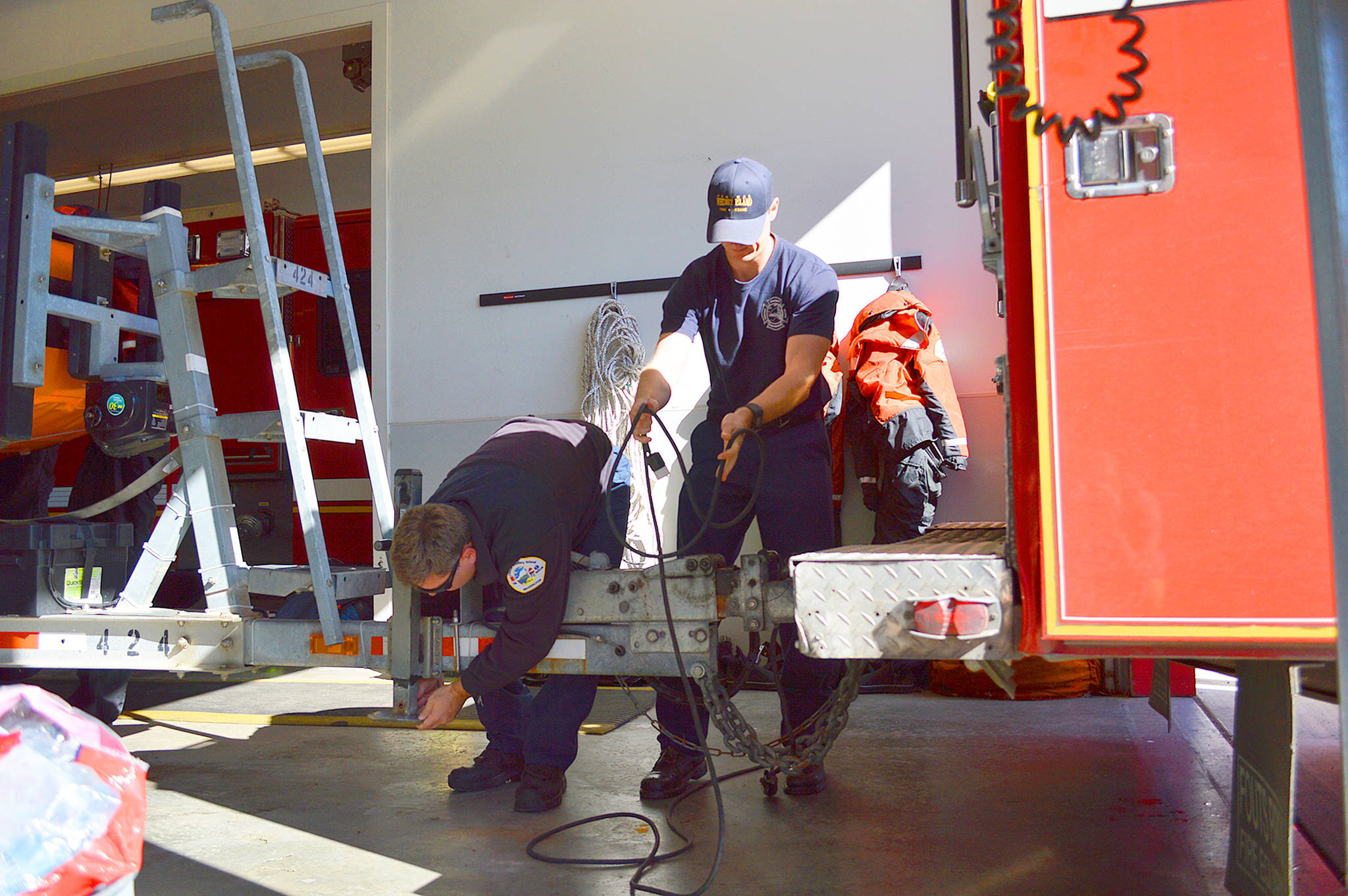With aging fire engines and increased emergency call volumes, Central Whidbey Island Fire and Rescue is asking voters to approve a new bond.
The bond would last 20 years and pay for renovations to Station 53 on Race Road. It would also fund the replacement of three fire engines.
The district serves households from just south of Libbey Road to just north of Mutiny Bay Road.
Renovation of Station 53 would add space for engine maintenance, larger engine bays and add sleeping quarters in the main building. Currently, the sleeping area is a single-wide mobile home outside of the main building. When a call comes at night, on-duty firefighters must get dressed, cross a large parking lot to the main building and enter in a code to unlock the door.
“Which, at two in the morning, doesn’t always work,” said firefighter Ethan Vroman.
If the call is for a fire, personnel must get dressed again in their protective gear and get to the engines. Each of these steps significantly impact response times, which tend to be slower at night, according to district officials.
Proposed renovations would increase the number of beds available for nighttime duty from three to six. With more on-duty personnel in the main building, response time should improve as well as the time it takes for enough responders to be on the scene, said Fire Chief Ed Hartin.
Many situations, such as fires, require a minimum of six responders to effectively address the situation. Hartin said he hopes an improved sleeping arrangement would encourage volunteer firefighters to work shifts in addition to opting to respond from their homes.
Renovations would also address health concerns. If the bond is approved, plans include an upgrade to the mechanical systems to remove diesel exhaust fumes from the building and provide improved decontamination and storage space for protective gear.
The washing machine for the protective gear, which is covered in carcinogens after a fire response, is close to working space occupied by personnel. The expansion would move the decontamination space to avoid exposure to dangerous toxins on the gear.
The fire district’s needs have increased and more regulations are required since the station was built in 1991. For instance, having a system to remove exhaust did not used to be required.
“We didn’t think about diesel exhaust being a health hazard … now we know that diesel exhaust is a human carcinogen,” said Hartin.
With an aging population, the call volume for the district has increased almost three times what it was when the station was first built.
The equipment is also aging. The three engines needing to be replaced are at the end of their 25-year life cycle. Replacing them would positively influence the community’s fire insurance rating. This rating impacts the amount property owners pay on fire insurance premiums.
With the proposed bond, property owners would pay 22 cents per $1,000 of assessed value. An individual with an assessed property value of $200,000 would pay $44 per year. A flyer with frequently asked questions will be distributed to households in the district’s service area later this fall.
If the bond doesn’t pass, the engines would be able to be replaced on schudeule, but staffing would likely need to be reduced before 2022 if another source of funding couldn’t be obtained, said Hartin.
“It’s the community’s choice,” he said. “Our target is to give them the best level of service that we can with the resources they provide, we don’t get to decide that. Our obligation is to present them with options.”
• More information about the Central Whidbey Fire &Rescue bond can be found online at www.cwfire.org



